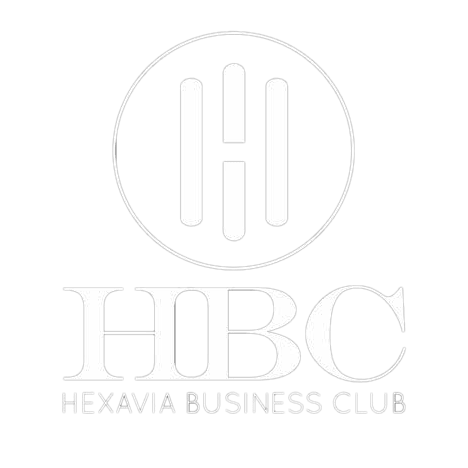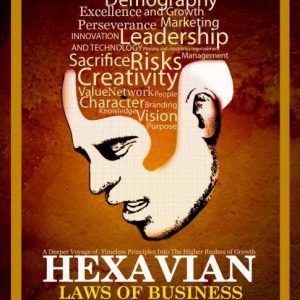
Scientifically, a Generation is an average of 25.5 years, and depending on how you choose to calculate it, we’re currently on the 4th phase in the last 100 years.
Twenty – Five years ago, Dangote would have looked at Abiola and aspired to be like him. Oyedepo would have looked up to Idahosa in the same light that Jeff Bezos would have looked at Bill Gates too. When generations shifts, economic and power tables feel the tremor as new leaders emerge.
According to the Pareto’s 80:20 Principle, 80 percent of the wealth and power of any generation will always be owned by less than 20 percent of that generation. The rest of the 80 percent will work for and be controlled by the minority 20 percent. The good news is, the people and trends are reshuffled every 25.5 years. This is due to technology and business model shift. I also believe that it’s how the universe resets the distribution of wealth and resources to drive interdependence and balance. It is only natural.
Now more than ever, Nigeria seeks a new generation of business executives and leaders to trap the new model. So every 25.5 years, business models, societal and political needs in terms of technological advancement changes; this way new opportunities emerge for new guys to take advantage of.
In a Century, there are about 4 to 5 almost overlapping generations. Let’s take a look at the last 5 from the newest to the oldest in the last 100 years:
- Gen Z, iGen, or Centennials: Born 1996 and later.
- Millennial or Gen Y: Born 1977 to 1995.
- Generation X: Born 1965 to 1976 (They are the ones still in political power in Nigeria though a fast dying age grade).
- Baby Boomers: Born 1946 to 1964 (Born after the 2nd World War, back then were highly populated hence the name)
- Traditionalists or Silent Generation: Born 1945 and before.
Millennial’s refer to members of the generation born between 1975 to 1996 (I’d like to call them The MTV Generation). Just to better have a graphical image, let’s say that they are those who watched Michael Jackson do the moon walk on TV while M.J. was still alive. They birth Hip Hop. To them we owe a lot swag. They were super cool!
We also have the Centennials aka, the I-Generations or Generation Z. These centennials are the digital natives. They are those born after 1996. They really don’t have to use most technologies or gadgets with a manual. Rocket science isn’t that hard, it’s not rocket science to them for it has been automated. They rarely visit FAQ page of sites. They are very intuitive. It feels as if they had programming implanted during birth. They are super smart and very fast paced.
According to psychology, the three key trends that shape and differentiates generations are parenting, technology, and economics.


For example, many Baby Boomers have the parenting philosophy, that is the, “We want it to be easier for our kids than it was for us.” This philosophy in turn helped create and reinforce Millennial’s sense of entitlement, which is now a hotly debated topic.
How do these generation kinetics affect business models, the nation and their businesses, and our role in leading the next 25.5 years?
This current generation mainly of Centennials and Millennials are the ones that took a deep dive into the internet. They literally live there. The effect has become the disruption of mainstream distribution and marketing. Anyone with good content and following can create their own platform and community. Anyone can propagate and thrive in an ideology too. This is made easier with social media. Data and information has been democratized. But also on the rise is the information immunity syndrome. Now the information overload is creating excessive advertising, attempts at mind control, consumerism driven by capitalism, corporate fake news, and generic mass education. Back to the boardroom, unknown to a lot of people, big budget for campaigns, and ads are failing. Content marketing, online influencers and contagiousness is replacing mainstream marketing.
We are seeing more of smart algorithm driven by Artificial Intelligence. We have to build more intelligent houses through smart homes, and even more intelligent businesses. Geo tagging uses Meta tags linked to your location to track people to deliver solutions, predict actions and drive decisions that have become mainstream. How well are you applying them? These are changing times. Currently, there is an app that can use your facial expressions when recording to know if you are lying. Imagine a political debate or job interview where it’s being used. That’s data in motion.

In this generation, data is the new currency. Apple’s Siri is really smart, sapiosexuals with tech driven sexual orientations are already “falling in love” with the In-built iPhone assistant. With IBM’s Watson, it’s not just a software, you can get legal advice (so far for more or less basic stuff) within seconds, with 90% accuracy compared with 70% accuracy when done by humans. So, if you study law, consider that as a competition too. There will be 90% fewer lawyers in the future, only specialists will remain. This is very much the case for most industries.
Consider these facts:
- IBM’s Watson already helps nurses in diagnosing cancer, 4 times more accurate than human nurses.
- Facebook now has a pattern recognition software that can recognize faces better than humans.
- Autonomous cars are already available. They can navigate without human input and have the capacity to be fully aware of the environment.
- Take for example, in Lagos, Google Map can predict more accurately 20 times better where traffic will be than LASTMA can.
In the next 10 years, improved safety standards, ergonometric design and technology reducing any form of vehicular accidents at the same time when chemo, 3D printing of human parts, nanotechnology, biotechnology and more life support machines and dialysis centers will be more compact and affordable for all clinics, 70 percent of deaths will be structural and very predictable. So, I was talking to one of my techy mentees and he says “Mr Eizu, I may create an app that will help people calculate how many more years and days (up to how many seconds they will have more to live). It sounds scary yet valuable. That’s a fun way to make money. He meant he will be very successful.
TIP: The future belongs only to businesses set up to revolutionize their industry. In a world where most basic inventions have been achieved, Disruptive Innovation is the concept to study, especially in relation to technology. All businesses will be tech businesses in the future. Either become one or get consumed by one.
I suggest that all business owners should begin to create an intelligent workforce that is tech and data driven. And then use that to build your business model.
The future isn’t for sophisticated technology, so simplify yours. In this emerging generation people don’t have time and don’t want to be bothered to do critical thinking, especially millennial’s and digital natives. Use data to know where your market and data will be. For example, Snapchat’s target market is the millennial’s. So, they design their products through their UI to suit them.
Who ever thought people would be able to buy cars and houses from mere blogging? I mean, there was no such career path just 10 years ago in Africa. I spoke to yellow cab taxi driver in Lagos a few days ago and he said that all they do is sleep more at the parks. He thinks people don’t have money for taxis anymore, he doesn’t know it’s because of Uber. Who ever thought that over a billion very intelligent and careful people including you will willingly submit their most personal details including names, emails, phone numbers, photos, where they live, things and who they love to Mark Zuckerberg? And it’s called Facebook.
Locally, no one saw these 20 years old start Interswitch, Flutterwave, IrokoTV, or Jobberman to revolutionize their industries. Globally, who ever thought the biggest companies in the world would come out of nowhere in just 10 years and take over companies that have been in existence for centuries. The likes of Apple, Amazon, Google and Facebook are already amongst the first trillion-dollar companies the world has ever seen. These companies are trying to revolutionize everything, but they were born out of people’s unquenched thirst to know everything, so they did it so easily.

Technology, user experience and information immunity from the syndrome of information overload is pioneering that of this generation. Every customer gets edgier, lazier and more price conscious with time. The antidote will be convenience and cost saving for him. Staying relevant means being disruptively innovative. There are different types of innovations, but there is one that cuts cycle time and cost for the customer. That’s what Prof Clayton of the Harvard Business School defines as Disruptive Innovation.
Disruptive Innovation is when a company (most times startups) produces and eventually masters the marketing of products that seems to be simpler, superior and more affordable than the prior products in the market place, thereby creating a new value network. It’s mostly by the new comers. At this point these underdogs take a neglected marketplace that the incumbent leader isn’t interested in because its focus is to make better products at a better price for profit. While they are at it, the underdog sneaks up and takes them out. Disruptive Innovation is a strategy game of the underdog.
TIP: Every generation becomes lazier, crazier and busier. Always remember this as you build a business.
It important to see anyone that walks into your store as extremely;
- Lazy
- Crazy and
- Busy!

Let me explain this:
- They are so LAZY, that the likes of Sony over 2 generations ago invented the TV with a remote control and now Jumia, two generations after delivers them to their doorsteps. What did they both consider, and how did they leverage on it (Lazy = Convenience). How can you make your product more convenient?
- They are CRAZY. If your business is not exciting enough, no one will buy. Coca Cola over a century ago, created a fizzy drink and attached excitement and propaganda out of that sugar water – they turned Christmas colours from brown to red and white (colours of coke) and invented the concept of Santa Claus to back that up. Till today they are known to have one of the most exciting campaigns.
- Your customers are so BUSY, such as to listen audio books while driving. How can you put your product in their schedule?
Think…
My dear, in this generation, people thrive to be different. Being different is woke.
Don’t be better, be different!
Eizu, ©Hexavia!
Strategy. Business StartUps and Corporate Restructuring Consulting
T: 08035202891
Uwaoma Eizu is the lead strategist at Hexavia! He is a graduate of Mathematics with two MBAs and over a decade of experience working with startups and big businesses. His core is in building startups and in corporate restructuring. He is also a certified member of the Nigerian Institute of Management, Institute of Strategic Management of Nigeria and the Project Management Institute, USA. By the side, he writes weekly for the BusinessDay newspaper.



